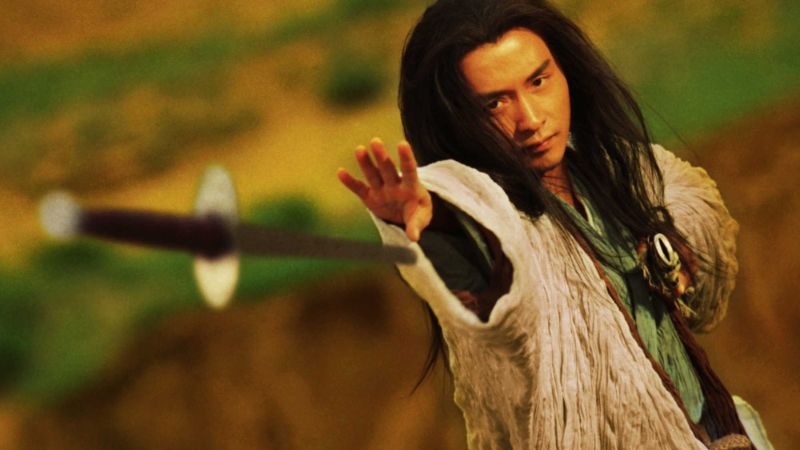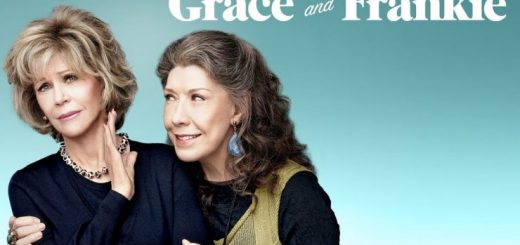The 21 best martial arts movies of the 21st century
Flying kicks, millenary styles, and legendary heroes: we offer you an anthology with the best that the most illustrious genre of Asia has offered us in these last 15 years. The 21 best martial arts movies of the 21st century.
Can you imagine that the US public belittled a director who dares with a western? Well, for the Asian public (and, above all, for the Chinese) the martial arts genre occupies a dignity comparable, if not superior, to that of cowboy cinema in the West: we speak of an ancient tradition than the cinema from there he assimilated since he started shooting the first camera and he has given immortal classics both in the twentieth century and in the twenty-first. For the spiritual illumination of cinemaniacs and cinemaniacs, we present here an anthology that encompasses from the classic images of wuxia (the most classic aspect of the genre in China, with its kung-fu schools, its exotic weapons and its legendary heroes) to ‘author’ experiments, going through peaks of the policeman, the drama … and also the comedy, because here There is room for everything. By the way, do you guess who signs the only western film in our report?
Crouching Tiger, Hidden Dragon (Ang Lee, 2000)
For some hardcore as of martial arts, the wuxia excursion of the director of Sense and Sensibility is a discrete work within the genre as a whole. For the general public, however, it was a luxury passport to the ancient landscapes of the Kung-fu, with a leading trio of the first order (Chow Yun-Fat, that actorazo, the great Michelle Yeoh and an exquisite Zhang Ziyi ) and the Just doses of fantasy and drama to inoculate the bug. All this supported, in addition, with the prestige of four Oscar.
House of flying daggers (Zhang Yimou, 2004)
Never forget: in the same way as the classical genres of the West, the Chinese wuxia is a generous way in which everything fits, while the fighting grinds. So, do not be surprised if we say that the second experiment of Yimou (a director who had become famous thanks to rural and historical dramas such as Red Sorghum) is a noir of suspicion and conspiracies, wrapped in a paradoxically bright photograph. And indeed, here is also Zhang Ziyi. Does something happen?
Ong bak (Prachya Pinkaew, 2002)
Hold on, moviegoers, Tony Jaa arrives straight from Thailand and willing to prove that the martial world does not end in China. Extremely choreographic in its fight scenes, and with an urban setting that goes beyond the parameters of wuxia, this ode out of focus to Muay Thai, its paradoxes and its elbows also includes one of the best chase scenes (on foot) that can be seen at the cinema. A pity that his two sequels were not up to par.
The Raid 2 (Gareth Evans, 2014)
Welsh by birth, Gareth Evans debuted shortly with a history of samurai and ended up finding his land of promise in Indonesia after traveling there to shoot documentaries. The aftermath of an equally splendid film (The Raid, 2011), this film serves the filmmaker to show us the virtues of Pencak silat, a martial art of devastating effects, through a very noir and very twisted script. The third installment is in preparation.
Red Cliff (John Woo, 2008-2009)
In the wuxia stylebook, there is also room for epic battles. And, in order to show us that facet, we have an exceptional filmmaker: back in China after an irregular Hollywood journey, Master Woo overwhelmingly adopts a fragment of the Romance of the three kingdoms, historical megacolon epic of the fourteenth century that continues to do furor over those payments. The monumental original duration of the film (almost 300 minutes!) Was reduced to just under half for its premiere in the West.
Fearless (Ronnie Wu, 2006)
Jet Li is another of those Asian talents who returned to their homeland after an irregular season in Hollywood. In the same way, director Ronnie Wu (The White Hair Bride) emigrated to the other side of the Pacific … to end up rolling Freddy against Jason. Back in China, both teams up for a great biopic of Hou Yuanjia, a legendary master of martial arts.
Kill Bill (Quentin Tarantino, 2003-2004)
Who said that good martial films are not made in the West? With a brain full of kung fu movies, with his muse Uma Thurman katana at the ready and with his inimitable hand with the camera, Master Tarantino pays a two-part tribute to the Japanese and Hong Kong classics, with a cast of bells (that Daryl Hannah was one-eyed!) and her usual moral chiaroscuro.
Ip Man (Wilson Yip, 2008)
Another vintage Chinese movie? You are right. And a biopic, in addition: Donnie Yen, a Bostonian of adoption and coming from a long martial lineage, gets into the skin of one of the great innovators of martial arts, who would end up being the master of Bruce Lee himself. The film, the first chapter of a trilogy whose last part premieres this year, won an award in Sitges.
13 Assassins (Takashi Miike, 2010)
What things are: at this point in the report, and we have not yet included any samurai films. No problem, because Miike (a man as prolific as insane) brings us a wild, beastly and fast-paced film, thanks to which it is easy to understand why the public of the Rising Sun knows the genre of slashes as chanbara: by the sound it makes a katana very sharp when cutting the entrails of some unsuspecting …
Kung Fu Hustle (Stephen Chow, 2004)
As we have said (and as we will repeat) in martial arts cinema there is room for everything. Even for comedy. And, if this comedy is a spoof full of absurd humor, whose director and protagonist knows the genre thoroughly enough to fill his images of winks, allusions, and parodies of the classics, then all the better. This movie could have been titled Martial Arts Movie, but it has too much class for that.
Ashes of Time Redux (Wong Kar-wai, 2008)
Recruit the biggest stars of Hong Kong cinema (Leslie Cheung, Tony Leung Ka-Fai, Tony Leung Chiu-Wai, Maggie Cheung). And roll their fights out of focus, so that the public barely finds out what’s going on. Who comes up with something like that? Well, to the director of Desiring to love and Chunking Express, who takes his 1994 feature film (released in Spain as That West Poison) to trace it, redesign it and almost rewrite it completely. An experimental jewel.
Kill Zone (Wilson Yip, 2005)
The English title of this Hong Kong movie was Killzone, and, believe us, he earned it by hand. We leave for a moment the period clothes (and epic) to present you with an Asian noir of those that inspire Tarantino so much, with Donnie Yen (Ip Man) as a policeman … and veteran master Sammo Hung giving everything as stately ‘godfather’, of those in suits, ties, and special offers. A joy, in short.
Hero (Z. Yimou, 2002)
We met Mr. Yimou, also offering his first wuxia in conditions: the future director of The House of Flying Daggers demonstrated his versatility in some overwhelming fights (it could not be less, being Jet Li at the head of the cast) also narrated by a very elegant structure of flashbacks… that, everything is said, hides a certain apology of the caudillaje and the absolute power that the Chinese censors should have loved. In any case, the movie is a jewel.
Chocolate (P. Prinkaew, 2008)
Do not be confused: this has nothing to do with the romantic desserts of Johnny Depp and Juliette Binoche. And much to do with the most destructive muay Thai. The formidable YeeJa Yanin plays an autistic girl who could star in a drama of crying a lot. Except for the ‘small’ detail that does with the martial arts what Dustin Hoffman of Rain Man with roulette.
The Blind Swordsman: Zatoichi (2003)
Is it a samurai movie? Is it a period drama? It is a musical? It’s a comedy? Rather, it is all that: great as always, Kitano rescues one of the most emblematic characters of Japanese martial arts cinema to interpret it in a hilarious movie, full of memorable scenes and with a track final. Don’t get confused: this blind mercenary has a lot of sight
Shaolin Soccer (S. Chow, 2001)
Did you always think that Champions had realism? Well, here comes Stephen Chow (Kung Fu Hustle) to show that who can tip paradoxes on other people’s faces can also kick a ball with ease. This soccer comedy was the gateway to the hottest side of martial arts for many spectators in the West.
Black Belt (Shunichi Nagasaki, 2007)
As his Eastern Fury demonstrates, the great Bruce Lee did not have karate in high esteem. We are sorry to contradict the teacher because in this film (starring three martial artists. And Japanese, dragged by the turbulent history of their country) there are as many hand strokes as emotion and nobility.
Azumi (Ryuhei Kitamura, 2003)
Japan from the Sengoku period (the era of the great civil wars) was not a hospital site for women, precisely. But Azumi (Aya Ueto) does not care much: we speak of a teenage murderer with a firm pulse. And a heart tanned by an infernal training, which has been since her film debut conquering otakus and no- otakus with their feats.
The Grandmaster (W. Kar-wai, 2013)
What happens when Wong Kar-wai adapts to the cinema the same story that inspired Ip Man? Well, we have a much less spectacular movie, and much more focused on human drama. And also, with Tony Leung Chiu-Wai in one of the best roles of his career, which is saying a lot.
Flash Point (W. Yip, 2007)
Two years after Dragon Duel, Wilson Yip (behind the camera) and Donnie Yen (behind the blows capable of knocking an elephant) rejoined for a somewhat less memorable policeman, but still worthy of being here thanks to his shootings and his history of crossed loyalties.
The Assassin (Hou Hsiao-Hsien, 2015)
At this point, it should be clear: for Chinese directors, action and martial arts are not ‘minor’ needs. Which can be dedicated to them without prejudice to their prestige. Hence, the author of The Flight of the Red Balloon and Millennium Mambo now presents us with this wonder that promises to revolutionize the rules of the genre thanks to its realism, its seriousness and the scenic presence of the beautiful Shu Qi.












